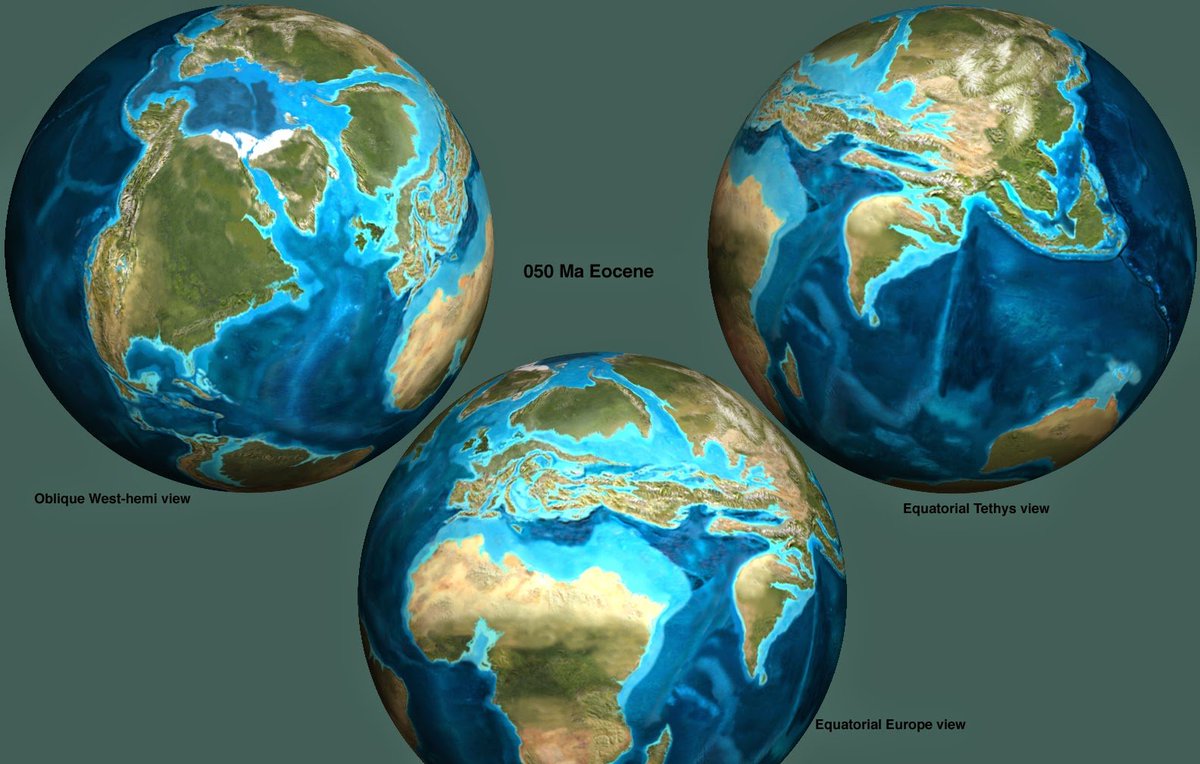the temperate forests were circling the warm arctic ocean, in the winter they still had 24 hour nights but the equatorial waters were SO HOT that there were giant heat engines that rolled north and maintained survivable temps in the winter. but the forests evolved to go to sleep
this is where all trees in the worlds many temporate forests lived together: all the oaks, beech, chestnuts, maples, roses, ash, alder, fir, pine, hemlock, horse chestnuts, rowen, etc. and they moved slowly south only 10 km a decade or century- different trees at different rates
and during the interglacials they would move north slowly at different rates and then south again, rolling into new complications of relationships with one another with different landscapes. But they have never stood still. The forests now have to change directions and sprint
and this is relatively short time in terms of generations of trees. when our forests had trees 500-2000 years old there is the possibility of only a short number of generations. Coevolution is an adaptive process amongst vast movements
the reason i go into this is that it's important to really understand the implications of climate history. for us we live such short lives that we can't see some of the broad dynamics without some work and learning of deep history.
been a long time since earth had this kind of change. And systems that are staying put have really different dynamics then when they are moving north or south, idea of a plant association falls apart on species-species level when we understand species move at different rates
instead on this scale there is a higher-order pattern of sizes, shapes, biochemistries, root depths, functions that work out over tens of millions of years of time, they don't know each other perfectly but they "know the type" and new assemblies of "Found Community" form

 Read on Twitter
Read on Twitter


